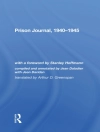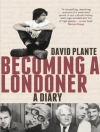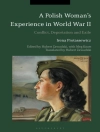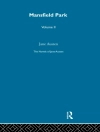In ‘Letters to his Mother, Ann Borrow and Other Correspondents, ‘ George Borrow offers an intimate glimpse into his life through a collection of heartfelt correspondences. Written in a style that is both candid and reflective, these letters traverse the landscape of 19th-century England, revealing Borrow’s profound connections with family and friends. The text is imbued with personal anecdotes, literary insights, and a rich cultural commentary that highlights Borrow’s experiences as an author, traveler, and translator. This compilation not only showcases Borrow’s eloquence but also serves as a testament to the epistolary tradition while providing a contextual understanding of his literary milieu. George Borrow was a pioneering figure in English literature known for his passion for language and his exploration of diverse cultures. His travels across Spain and Portugal significantly influenced his renowned works, including ‘Lavengro’ and ‘The Bible in Spain.’ The letters compiled in this volume offer insight into Borrow’s motivations, fears, and joys, reflecting the complex emotional landscape of a man deeply affected by the world around him and his literary pursuits. This collection is highly recommended for readers seeking to understand the personal dimensions of Borrow’s life and work. It is a vital resource for scholars of 19th-century literature and anyone intrigued by the interplay between an author’s correspondence and their creative output. Through Borrow’s letters, readers will glean a richer appreciation for his contributions to English literature and the nuanced experiences that shaped his narrative voice.
เกี่ยวกับผู้แต่ง
George Borrow (1803–1881) was an English author and traveler whose works reflected his wide-ranging adventures and insights into the lives and languages of the Romani people. With a natural affinity for languages, Borrow became adept in many tongues, which allowed him to engage deeply with the cultures he encountered during his extensive travels across Europe. His literary contributions include several notable works, such as ‘The Zincali’ (1841), ‘Lavengro’ (1851), and ‘The Romany Rye’ (1857), which offer a combination of autobiography, travel narrative, and an examination of Romani culture. His style is characterized by a detailed narrative, interspersed with anecdotes and character studies that provide a vivid portrayal of the individuals he met and the societies in which they lived. Borrow’s posthumously published ‘Letters to his mother, Ann Borrow, and Other Correspondents’, edited by William I. Knapp, provides an intimate glimpse into his personal life and the relationships that shaped his experiences. His letters document his tireless journeys, his passion for language and culture, and his enduring connection to his mother, who was a significant influence throughout his life. Borrow’s work remains a valuable resource for linguists, folklorists, and anyone interested in the life of a quintessential nineteenth-century traveler and polymath.












